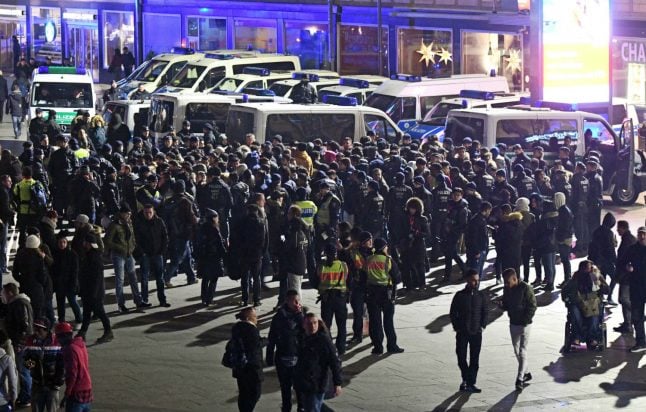“They were trying to run rings around the German state,” said Armin Schuster, security expert in Chancellor Angela Merkel’s Christian Democratic Union party (CDU).
“The fact that so many people of the same background made their way to Cologne, just like last year – that was a test of strength.”
Schuster said that Cologne’s police had reacted appropriately to the threat, praising them for being “robust and decisive.”
But not every one was happy with the police behaviour. The Green Party criticized the police for the way they acted, accusing them of racial profiling. Party leader Simone Peter was particularly scathing about the use of the word “Nafri” – an abbreviation of North African – in a police tweet.
The police themselves were most surprised that they needed to call in reinforcements, despite having a presence ten times that of the previous year, when they were overwhelmed as over a thousand women were sexually assaulted or robbed.
Around 1,000 men who police say belong to the scene of repeat offenders from North Africa got out of trains in Cologne at around 10pm. Hundreds of them were ordered not to enter the street party area.
And it was a picture repeated in other cities. In Essen police stopped around 450 North Africans who they say belong to this criminal scene in the city centre, in Düsseldorf police said the number was close to 800.
The word Nafri is an abbreviation used internally by the police in North Rhine-Westphalia (NRW), where all of these cities lie. It is used to describe young men from North Africa who are repeatedly caught pick-pocketing.
Police say thieves' preferred method is to distract someone while they are walking down the street and to then steal their wallet.
Three weeks before this New Year, police sent out a clear signal to the young offenders. Toufik M., a man convicted of sexual assault at last year’s celebrations, was deported back to Morocco.
The events of New Year showed that the extremities of the previous year can be prevented, but the phenomenon hasn’t gone away.
Thousands of young North Africans between the ages of 15 and 25 have left the poor neighbourhoods of their countries over the past few years and made their way to Germany.
Many of them joined the masses of refugees who escaped from the Syrian civil war over the so-called Balkan route in 2015.
Less than 2 percent of all asylum seekers from North Africa have their requests granted. They almost always come alone, meaning that they are missing the often strong influence of their families, who care about protecting their reputations.
North Africans who have lived in Germany for longer, among them the well-integrated inhabitants of Düsseldorf’s Maghreb district, appear outraged by how the young men behave.
“We are also upset by what these young men are doing,” said Ahmed Hammouti, head of the Council of Moroccans in Germany.
He said that even immigrants from the region who have nothing to do with criminality have started feeling hostility against them.
But it is hard to influence the newcomers as “they almost never come into our communities,” he said.
The most recent statistics from the Federal Criminal Police Office (BKA) show that immigrants from North Africa (as well as those from Georgia) are more often reported for committing crimes than those from other countries.
Oliver Malchow, chairman of police union GdP, said that “these men have no respect for German law”, adding that they “laugh ironically at officers or spit at them.”
Due to the fact that North Rhine-Westphalia's immigration office has several employees fluent in North African Arabic, many of these young immigrants have been sent to the western state, Germany’s most populous.
But for some time now, authorities there have been calling for an even distribution throughout the country.
By Frank Christiansen and Anne-Beatrice Clasmann, DPA



 Please whitelist us to continue reading.
Please whitelist us to continue reading.